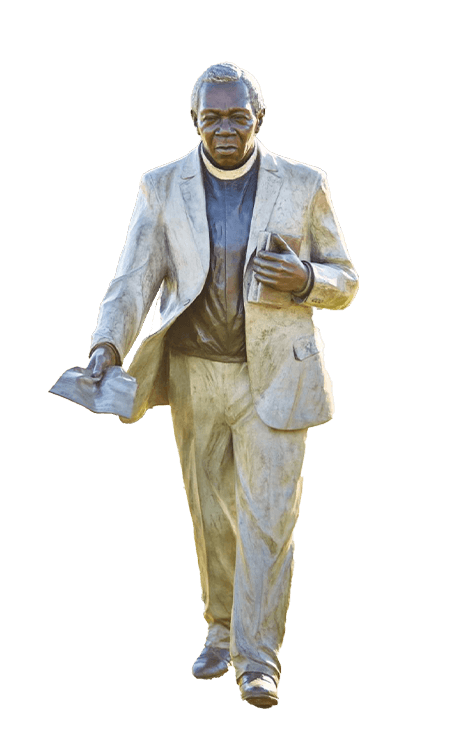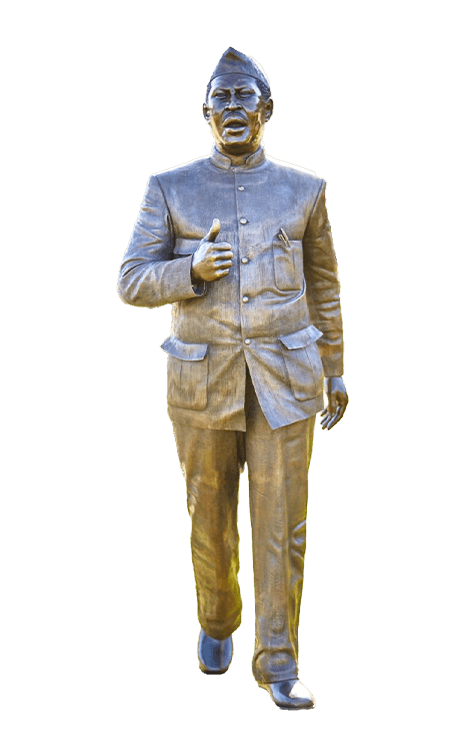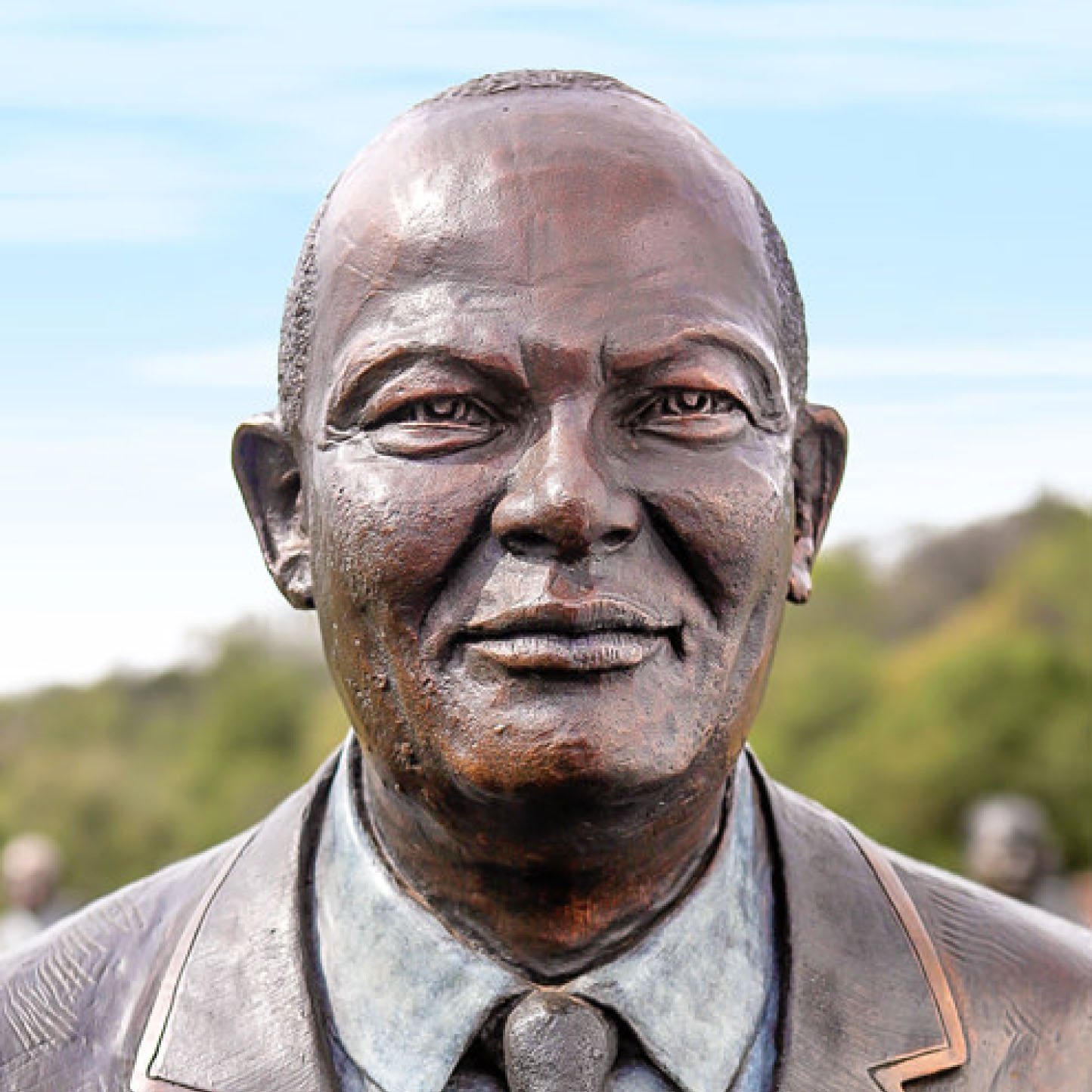
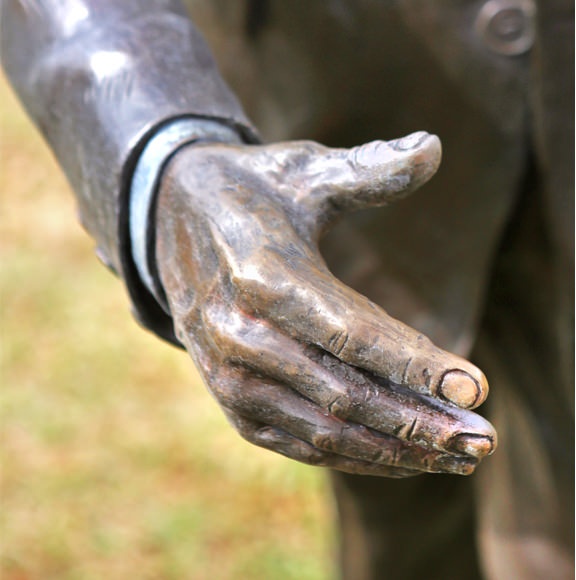
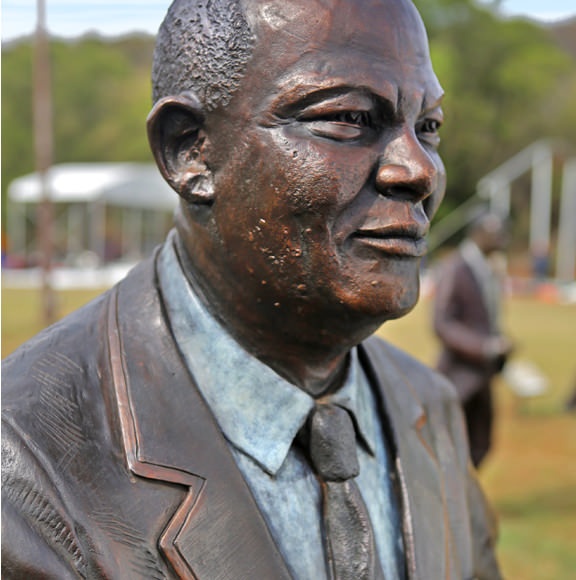
"I wonder whether or not the time has come for the African National Congress to consider the question of convening a national convention, a congress of the people, representing all the people of this country irrespective of race or colour, to draw up a Freedom Charter for the democratic South Africa of the future."
– Address by ANC Cape President Z.K. Matthews, ANC Cape Annual Conference, Cradock, 1953. Z.K. Matthews was the first to propose the basic idea of the Congress of the People, believing that a dramatic new initiative was needed from Africans
Zachariah Keodirelang Matthews
1901 – 1968
First graduate of the University of Fort Hare, Professor in Anthropology at the University of Fort Hare and Acting Principal, President of the ANC in the Cape Province, Treason Trial Defendant, Secretary of the Africa Division of World Council of Churches, Ambassador to the United States and Head of the United Nations Mission for Botswana
Zachariah Matthews was born the son of a Tswana mineworker in Kimberley in present-day Northern Cape in 1901.
Although exposed to politics at a young age through his cousin, Sol Plaatje, Matthews devoted the first part of his life to education, studying in South Africa, USA and England. He was the first graduate of the University of Fort Hare, obtaining a BA in 1923.
He was also the first African to earn an LLB degree at a South African university in 1930, the first to be given a scholarship to Yale University where he obtained a Masters Degree in 1934. He gained a Diploma in Anthropology from the London School of Economics in 1935. His academic prowess was legendary.
Matthews was a man with many vocations: an academic from the 1930s to the 1950s, an ANC leader in the 1940s and 1950s and a university administrator in the 1940s and 1950s. He argued the African cause with consistency and force.
He chaired the committee appointed by Dr A.B. Xuma to draw up the 'Africans' Claims' in 1943, based on the Atlantic Charter. A comprehensive statement of a pan-African vision of freedom, it included a Bill of Rights that rejected all forms of colonialism and its local variant, segregation in South Africa.
Known as a skilled diplomat, he wanted to get rid of divisions based on ethnicity, gender and class and was able to create consensus among people supporting different political positions. He played a pioneering role in promoting education for black South Africans, and influenced generations of future African leaders educated at Fort Hare.
Bridging the gap between the old guard and the more militant younger members of the African National Congress in the late 1940s and 1950s, Matthews exercised a major guiding influence on African political history at this most crucial period. When the apartheid regime assumed control of African universities in terms of the mis-named Extension of Universities Act, in 1960, he resigned his post at Fort Hare.
In 1962 he left South Africa to join the staff at the World Council of Churches in Geneva and in 1966 accepted the post of ambassador to the United States and Head of United Nations Mission for Botswana. He remained abroad until his death in Washington in 1968. He was buried in Gaborone, Botswana.
